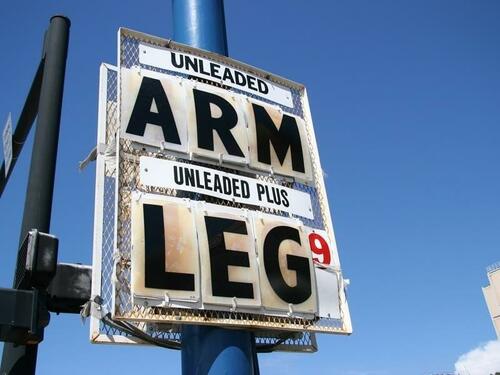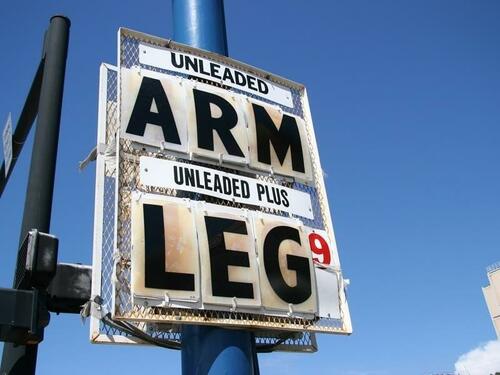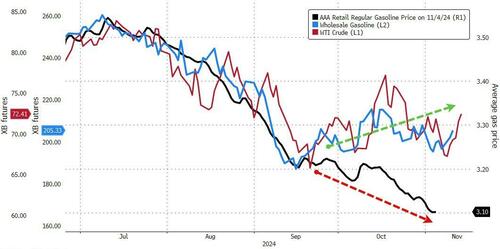Gas Prices In California About To Rise Even Higher
Authored by Eric Lendrum via American Greatness,
A series of new state regulations are set to make gas prices in California rise even higher in 2025, despite the state already having the highest gas prices in the nation.
As the Washington Examiner reports, the California Air Resources Board (CARB) is set to vote on a series of new fuel standards regulations on November 8th.
These regulations, which will go into effect immediately if approved, will increase the average price of gas in the state by 47 cents, according to CARB’s own estimates.
However, a study from the University of Pennsylvania’s Kleinman Center for Energy Policy released its own study suggesting that prices are more likely to increase by at least 65 cents.
Following backlash after the initial announcement of the new regulation, CARB appeared to backtrack and suggested it would revamp the new rules to minimize the price increase.
But instead, they simply re-announced the same regulations with the added caveat that, instead of being able to calculate the price increase for Californians, their study simply could not determine what the price increase would be.
“I don’t expect them to,” said CARB Executive Officer Steven Cliff.
He added that although “there will be additional impacts to costs to refiners,” he did not “think” that those costs would impact consumers as well.
The coming price increase is in addition to other regulations approved by Governor Gavin Newsom (D-Calif.) as part of an anti-price gouging bill, which mandates all oil refineries in the state to build new storage facilities for reserve gasoline.
As a result of the higher costs of building new refineries, many companies have been forced to simply shut down various facilities. The net decline in oil refineries means that the state may have to turn to importing foreign oil instead.
In 2019, California had 11 gas refineries. Currently, it is down to just 8. As a result, imports of oil from overseas are expected to more than double, from 8% five years ago up to 17% in 2025.
Tyler Durden
Wed, 11/06/2024 – 06:30



